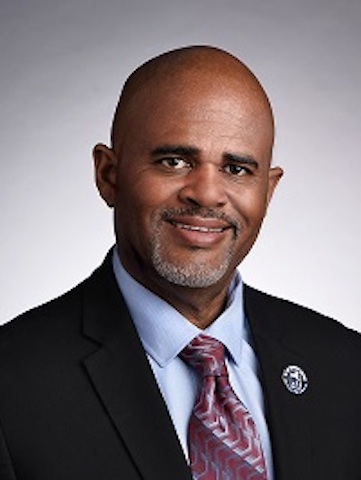NEW YORK — “Less is More” parole reform signed at the end of 2021 by Gov. Kathy Hochul ties the hands of parole officers, poses a significant risk to parolees and the community and is a slap in the face to crime victims.

The New York State Public Employees Federation (PEF) and its 50,000 members are fighting for revisions to the reform bill. PEF’s advocacy for change draws from the expertise of its parole officer members who know their parolees, know what it takes to keep them on the right path and know how best to protect New York communities and crime victims.
“Less is More requires that we turn our eyes away from those who are still serving their court-imposed sentences, who continue to demonstrate behaviors that negatively impact themselves, their families and the community,” says PEF Division 236 Council Leader and 16-year parole officer, Gina Lopez. “Language like ‘simple technical violation’ is misleading. All violations of parole are technical violations, except a new arrest. Parole violations are not meaningless. This law removes all meaningful consequences and accountability for parolees.”
The “Less is More” law unilaterally prohibits parole officers from using their experience, training and knowledge to protect communities from parolees who are willfully and despite repeated warnings continuing down a path toward re-violating the law. It irreparably harms the rehabilitation process for many parolees and eliminates the authority of parole officers to counsel or issue violations for issues such as illegal drug use, alcohol use, skipping curfew and failing to report.
There are approximately 34,000 New Yorkers on parole and only 800 parole officers across the state. Sixty percent of parolees are convicted of A1 violent felonies, such as assault, robbery and criminal possession of a weapon.
“Parole officers face staggering caseloads, with one parole officer responsible for supervising 48 parolees,” Lopez says. “’Less is More’ does nothing to mitigate those caseloads and fails to fund or restore mental health, alcohol and drug treatment, job placement and other services that parolees desperately need for successful reintegration into the community.”
PEF is advocating for changes to the legislation and held two successful rallies in Rochester and Queens last year, with more planned in 2022.
“What we’re fighting for is life and death,” says Lopez. “PEF believes meaningful parole reform must impact all aspects of reintegrating parolees into their communities. That includes providing adequate funding for low-cost education, technical training, mental health and wellness, addiction services and housing. PEF would like the state to consider amending its sentencing guidelines, which have not changed since 1995, and review the legislative risk assessment process that too often saddles parole officers with high caseloads.”



